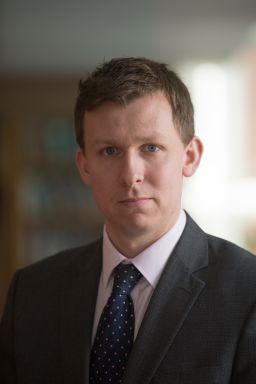Editor’s Note: Jeffrey Miron is director of economic studies at the Cato Institute, a libertarian think tank, and the director of graduate and undergraduate studies in the department of economics at Harvard University. Ryan Bourne occupies the R. Evan Scharf Chair in economics at the Cato Institute. The opinions expressed in this commentary are their own; view more opinion at CNN.
In his 1944 book “The Road to Serfdom,” Nobel prize-winning economist Friedrich Hayek argued that socialist economic planning resulted not just in accumulating losses of economic efficiency but “the very destruction of freedom itself.”


History was kind to Hayek’s worldview. The United Kingdom, Sweden, and India tested socialistic planning without sustained repression. But people in the Soviet Union, Venezuela, Cambodia and Cuba were not so lucky. Natural experiments between socialism and capitalism in East Germany and West Germany, North Korea and South Korea, and Hong Kong and China, bore out the link between economic liberty and personal freedom. Upon reunification, for example, GDP per capita in East Germany was one-third of the West German level, and the latter did not require the East’s Stasi or emigration restrictions.
In criticizing socialism as it existed in the 1930s and 1940s, though, Hayek meant a government that owned and operated the means of production, controlled prices, and planned where and how production took place. Economists since have broadly agreed this type of “planned” economy is flawed, albeit recognizing every country has socialistic programs.
In 2019, “socialism” is enjoying something of a revival in American politics. A Gallup Poll last year suggested Democrat voters now think more positively of socialism than capitalism. Sen. Bernie Sanders has self-described as a “democratic socialist” since the 1960s, and Rep. Alexandria Ocasio-Cortez is a card-carrying member of the Democratic Socialists of America.
Interestingly, these modern socialists do not rhetorically echo their predecessors’ definition. “To me, socialism doesn’t mean state ownership of everything,” Bernie Sanders has said, “…it means creating a nation … in which all human beings have a decent standard of living.”
Lest we think socialism merely a lofty aspiration, Bhaskar Sunkara, editor of Jacobin magazine, recently claimed the key plank of socialism today is an expansive welfare state entrenching certain economic activities – such as health care and child care – as social rights. Social democracies, such as Sweden, have been held up by Ocasio-Cortez as her vision for the future.
Superficially, this seems good news. If the “socialism” label now describes social democracy – capitalist economies with highly redistributive welfare states – then the “red scare” is overplayed. We need not worry about Hayek’s highway to Havana, but can debate taking the street to Stockholm. Some liberals even endorse a grand bargain with “socialists”: more social welfare in exchange for a lightly regulated economy with a well-designed tax system, to generate high levels of income to redistribute.
Alas, this sanguine view is delusional. Today’s socialists, while jettisoning the desire for direct government ownership, would put us on a path to Hayek’s destination, albeit via the scenic route. Their vision implies far more intrusive government than the social democratic rhetoric suggests.
Sunkara, for example, has called for converting shareholder firms into worker-owned cooperatives (something Sanders supports). This “market socialism” saw Yugoslavia’s economy run into the same stagnation and inefficiency as the centrally planned variant elsewhere. For a start, the problem that cooperatives have in raising capital will require national or regional investment banks to provide funds, thus government would be picking winners and allocating resources.
Far from letting markets rip, the Green New Deal, or GND, advocates placing the economy on a war footing to reach a net zero carbon target within 30 years, including overhauling the transport sector and converting all buildings to make them energy efficient. This is the antithesis of market-led decision-making.
The GND’s social goals do not end with fiscal transfers, either. A jobs guarantee paying a family wage would see the federal government become the world’s largest employer, placing workers into its favored environmental, infrastructure and caring sectors. The GND also demands emboldened labor unions, strengthened labor market regulation, and beefed up trade rules to protect domestic workers and manufacturing. Elsewhere, socialists have extolled “free” college, breaking up financial institutions, and a $15 minimum wage.
Far from a broad-based, pro-growth tax system to deliver the revenues for this agenda, modern socialists range from favoring direct money printing (aka Modern Monetary Theory, a view dismissed as nonsense by every reputable economist across the spectrum) to endorsing extraordinarily high, distortionary tax rates on the rich. In fact, some want punitive tax rates to reduce inequality, even if this raises less revenue.
Where today’s socialists want more generous social protections through guaranteed health care, child care, and other benefits-in-kind, the distinction between government ownership and financing will be illusory in practice.
Once government covers the costs of a service, it sets limits on how much it pays as the major consumer, creating de facto price controls. Governments attach conditions to their spending, too, defining who can work in an industry or the standards producers must meet. These regulations create shortages in high-cost areas, necessitating subsidized provision to meet demand. Before long the industry is effectively nationalized through regulation.
Hayek’s key observation was that intervention creates problems that encourage further corrective intervention, eroding freedom along the way. Today’s socialists might not demand eliminating private property, nor be calling for gulags to enforce their vision. But, combined, their proposed regulatory, spending, and taxing onslaught would severely restrict freedom and undermine prosperity, just like the socialist experiments of old.


